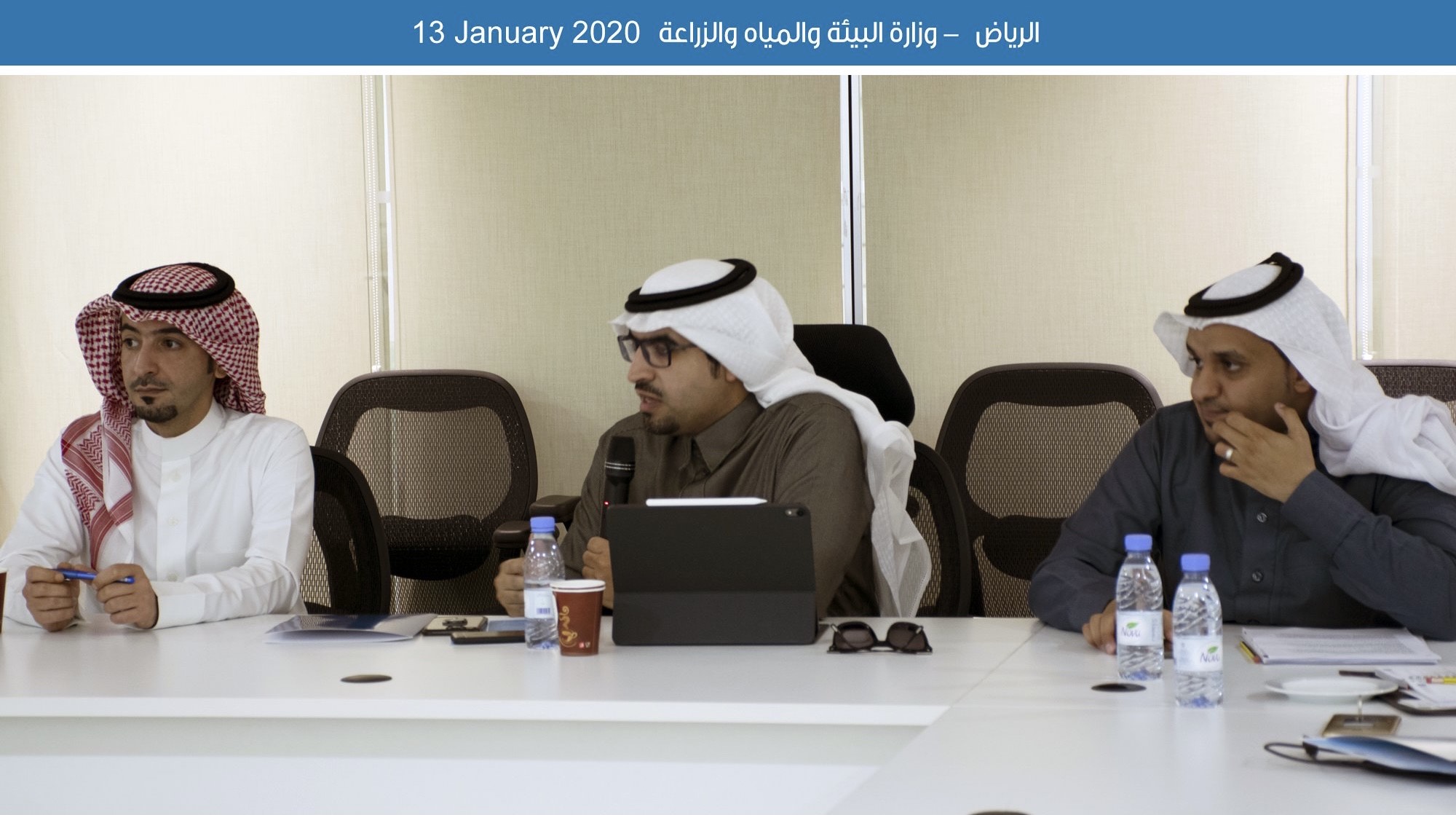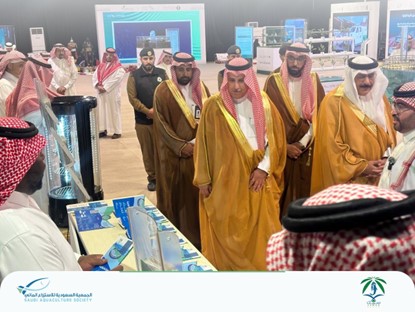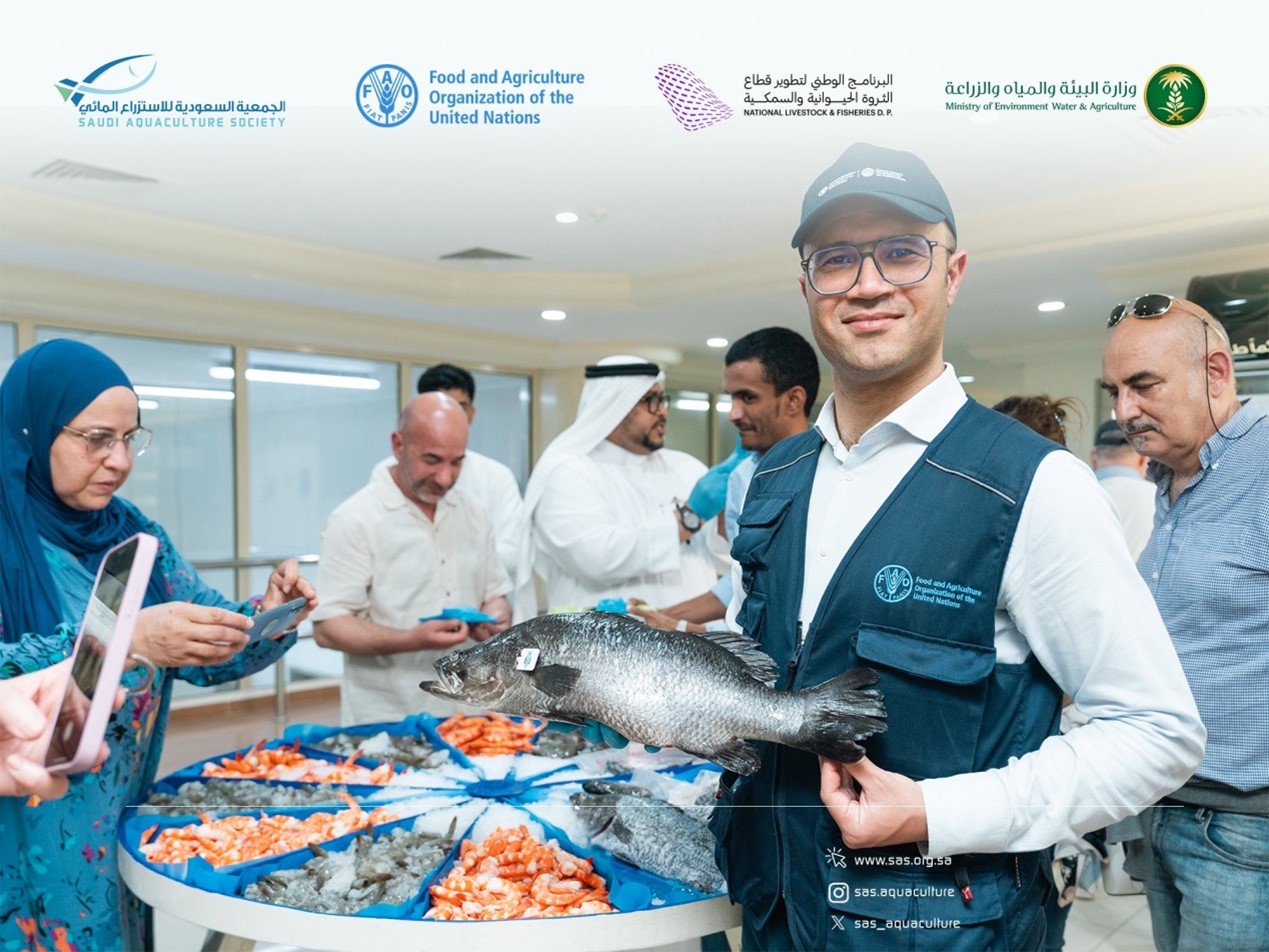
Holding 22nd Biosecurity Workshop on aquaculture projects in the Kingdom.
Emphasis on more supervision and inspection of aquaculture projects and their compliance with the application of biosecurity standards and requirements to ensure a responsible and sustainable aquaculture industry.
The 22nd Biosecurity workshop on aquaculture projects was held at the headquarters of the Ministry of Environment, Water and Agriculture in Riyadh today, Monday, January 13, 2020, under the patronage of His Excellency the Director-General of the General Administration of Fisheries, the CEO of the National Program for the Development of the Fisheries Sector, Dr. Ali bin Mohammed Al Sheikhi, with the participation of His Excellency Amin General of the Saudi Aquaculture Society, Eng. Mohammed bin Ibrahim Athebi, where the workshop opened with a welcoming speech from His Excellency the CEO of the National Program in which he pointed out the importance of the role of biosecurity in monitoring aquaculture projects as one of the important programs supported and sponsored by the Ministry of Environment, Water and Agriculture and the National Program for the Development of the Fisheries Sector To protect the national aquaculture industry and enhance its capacity to face disease challenges. His Excellency the Secretary-General of the Saudi Aquaculture Society also stressed the importance of the existing cooperation between the Ministry, the National Program and the Society, which had a great impact on the success of the program’s work so far. His Excellency the Secretary-General thanked the work team in the program, which is managed and operated by the Saudi Aquaculture Society with efficiency and competence. Also, local and international experts participated in the workshop to review a number of important topics related to biosecurity, such as the techniques of cultivating vanimian shrimp and methods of developing them, the Applied Research Support Program to enhance the productivity of fisheries, one of the initiatives of the national program, as well as the requirements for importing aquatic organisms for the purpose of farming.
The general situation of biosecurity and the quarterly production in the Kingdom for the past period was also reviewed. Then, representatives of national projects working in the field of shrimp and fish farming presented a review of the efforts made by these companies at night, in compliance with and optimal application of biosecurity standards and requirements in the Kingdom.





.jpeg)